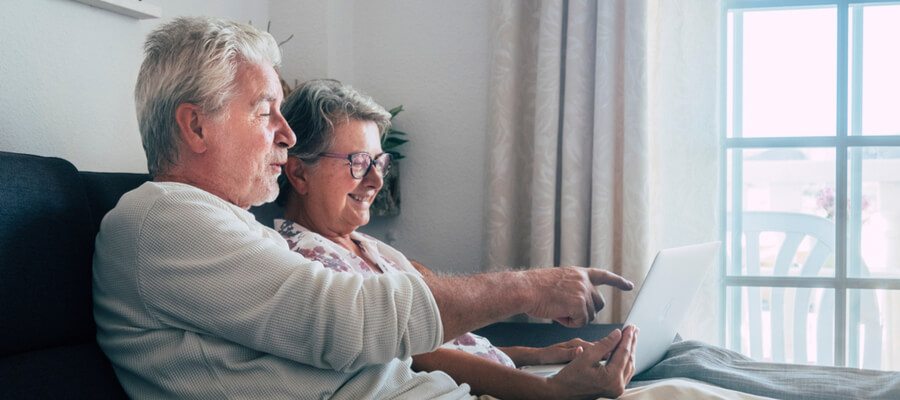Learn how to stay safe at home during the COVID-19 pandemic
We live in the times of COVID-19, a deadly disease that has brought almost the entire global economy to a standstill. Countries across the world have gone into a complete or partial lockdown, with individual provinces and cities also declaring a “State of Emergency”. Almost everywhere, non-essential businesses have closed temporarily, and wherever possible, employees are working from home. In the meantime, healthcare professionals are working round the clock to treat every infected and sick patient, medical researchers are racing against time to devise a cure or a vaccine, and public health authorities are trying hard to “flatten the curve”. The only thing that the rest of us can do is stay home in order to stay safe and prevent the spread of the disease.
Sir Winston Churchill once said, “True genius resides in the capacity for evaluation of uncertain, hazardous and conflicting information.” If there is any time that tests this theory, it is now. With each passing day, we hear or read new or conflicting information about coronavirus itself. From the methods of transmission and incubation period, to symptoms and experimental treatments, the global medical community continues to make new discoveries, assessments and conclusions about this relatively unknown virus.
In this emerging scenario, it is important to understand what causes the novel coronavirus, how to avoid it, and how to protect yourself and your loved ones from this life-threatening disease. Read on to know how to stay safe during the COVID-19 global pandemic.
Key learnings about COVID-19
While scientists may continue to revise their findings, here is what we know so far.
- What causes coronavirus? A large family of viruses that has existed for several years, coronavirus is responsible for illnesses, such as the common cold, severe acute respiratory syndrome (SARS) and Middle East respiratory syndrome (MERS). However, in 2019, experts identified another strain (called SARS-CoV-2) of the coronavirus family, which was causing a new type of respiratory disease, now called COVID-19. While the first cases emerged in Wuhan in China’s Hubei province, its rapid spread to 200+ countries led the World Health Organization (WHO) to declare this disease a global pandemic in March 2020.
- How does the COVID-19 virus spread? COVID-19 seems to be spreading through:
- Respiratory droplets or discharge from an infected person’s mouth or nose, when they cough or sneeze.
- Close or prolonged exposure to an infected person, such as touching or shaking hands.
- Touching surfaces that may have the virus on it and then touching your mouth, nose or eyes, without washing or sanitizing your hands.
- Who does COVID-19 affect? In a matter of months, COVID-19 has infected over 2.5 million people globally, and caused close to 200,000 deaths. This number continues to change by the minute. In Canada, we have seen over 40,000 cases and over 2,000 deaths between March 2020 and April 2020. From the data available so far, it appears that COVID-19 symptoms seem to be more severe in the elderly or people with comorbidities. If you are above 60 years of age or suffer from underlying medical problems, such as diabetes, hypertension, cardiovascular diseases, cancer, or chronic respiratory diseases, you may be at a higher risk of suffering from COVID-19. As of March 2020, the WHO estimates the overall mortality rate at 3.4%, while the death rate in infected cases aged 80+ is 14.8%.
- What are the common symptoms of COVID-19? Fever, dry cough and shortness of breath are amongst the most commonly reported symptoms of COVID-19. Based on currently available data, the incubation period seems to be 2 to 14 days, with an average incubation period of 5.2 days. Essentially, this means that even if you are infected with the coronavirus, you may not experience symptoms immediately, yet you could be passing on the infection to others around you unknowingly. In fact, in many instances where people tested positive for COVID-19, they experience very mild or no symptoms at all. Hence, it is important to stay home and follow the instructions of the public health officials to prevent the spread of this disease.
- How to avoid coronavirus? Follow these 3 steps to avoid the coronavirus infection:1. Stay informed about the disease and its evolving characteristics through an authentic source, such as the WHO or Canada’s public health website.
2. Protect yourself and others from infection by washing your hands frequently and using an alcohol-based sanitizer. Do this as soon as you complete your purchases at groceries or pharmacies, and after picking up packages or mail deliveries at home.
3. Make a conscious effort to not touch your face. You can also wear a non-medical mask or face cover if you need to go outside or take public transit for any reason but make sure you are always maintaining a safe distance. This may not necessarily ensure your own safety, but you could prevent infecting others, if you are an asymptomatic carrier.
- As far as possible, step out of your home only for necessities like groceries or medicines.
- Stay within your own ‘personal bubble’ (cluster of people who live with you in your home) and practice physical distancing from others (of at least 6 feet. Do not visit or invite friends, neighbours or other family members into your home.
- Refrain from going to the parks, beaches, or other public places. If you must step out for some fresh air, or to walk your pet, make sure you keep a safe distance from other walkers to comply with the recommended social distancing norms.
- If you receive any supplies or packages, request the delivery person to leave them by your door. Wipe down each item with an alcohol-based sanitizer, and remember to wash your hands thoroughly before touching your face, food or other surfaces in your home.
- If you are feeling even mildly unwell, do not go out for groceries or essentials. Ask a family member or neighbour to pick up what you need, and let them leave the items at your door.
The information on SARS-CoV-2 virus and the COVID-19 disease continues to evolve. At present, there is no cure or vaccine for this virus. About 80% of the infected people experience only mild symptoms and recover on their own, while the remaining 20% require hospitalization and care by medical professionals.
How is the COVID-19 pandemic impacting personal finances?
The short answer: ‘devastating’. Those employed before the pandemic may be dealing with job loss or involuntary early retirements. Business owners may be seeing massive losses due to the government-mandated closures and extended lockdowns. Landlords with steady rental income streams have been instructed to relax payment dates and not evict tenants. Retirees with other fixed income sources may be anxious about meeting their financial liabilities, such as credit card payments, medical bills and other expenses. As the COVID-19 pandemic continues to rage across the world, it is shredding the stock markets and causing massive dips in even the best-laid retirement plans. To find out more about the financial impacts of COVID-19, you can read more here.
Use the CHIP Reverse Mortgage® to stay on top of your personal finances
Amid the doom and gloom that has come with COVID-19, here is some good news. If you are 55 years or older and own your home, then you may be able to access up to 55% of your home’s equity value in the form of tax-free cash through the CHIP Reverse Mortgage. Retain ownership and continue to stay in your home, while using the loan for any kind of expenses. There is no obligation to make any principal or interest repayment, until you choose to move or sell your home.
Want to know how CHIP Reverse Mortgage® can help you take control of your personal finances through the COVID-19 pandemic and beyond? Call us at 1-866-522-2447 today.































